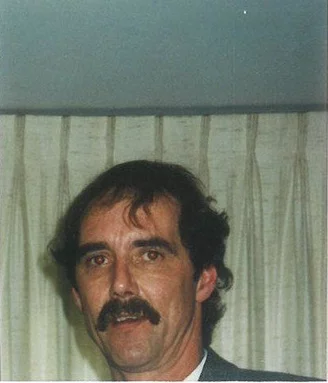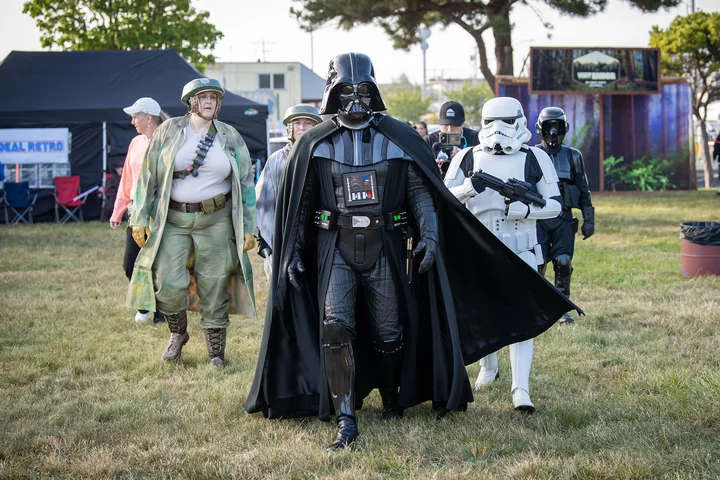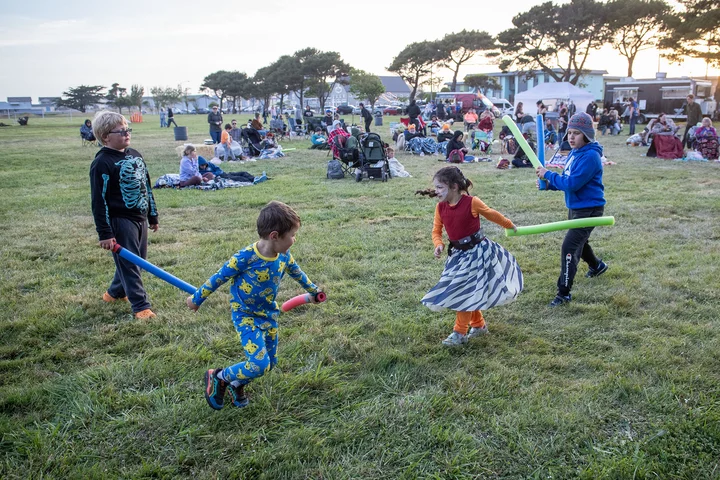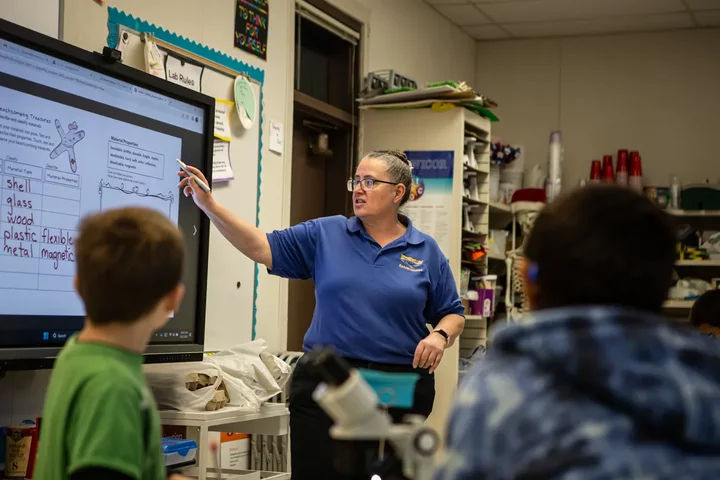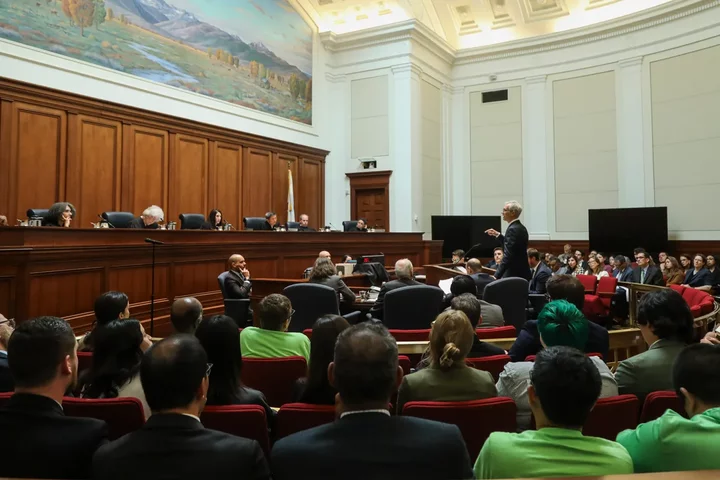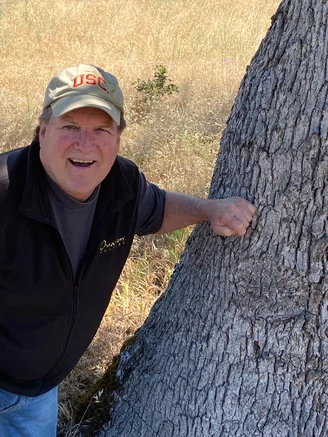OBITUARY: Stephen V. Shields, 1950-2025
LoCO Staff / Thursday, June 5, 2025 @ 6:56 a.m. / Obits
Stephen V. Shields, age 74, passed away on May 21, 2025 at St. Joseph Hospital in Eureka, with Loretta by his side. Born Aug. 15, 1950 in Eureka to Bob and Gladys Shields. He attended Freshwater Elementary School, Hydesville Elementary and Fortuna High School.
At Fortuna High School, Steve was an outstanding athlete, especially in football. In 1967, Steve was all-county for the football team that was made up of all seniors and each received the H-DN star, which marks him as a member of the only officially recognized all-star team for the Humboldt Del Norte CIF league.
Steve served in the Army in Vietnam for two years. After returning home, it was time to work. He started his career in the timber industry working at Louisiana Pacific, Eel River Sawmills, Palco and Humboldt Redwood Company. He mastered all equipment. Being a loader operator was his favorite.
Steve was a sports fanatic, especially football, baseball, basketball, NASCAR, boxing, MMA and more. If you didn’t know the answer to any sports question, just ask Steve, and they did. He was more than happy to share his knowledge to all that asked and some who didn’t.
Loretta and Steve made many trips to San Francisco to watch the Giants and A’s even though he was a Detroit Tigers fan. Stops were made at local sports bars to catch the action of all the games he didn’t want to miss. There was never a “Dull Moment” but well worth it. Steve was a 49ers forever fan. He wore the complete gear on game day. He would watch it with the guys and raise the roof off the house when the refs made the wrong call. He was in his element watching the Niners, win or lose, as long as he could watch the game and root them on with a cold coors in his hand. His favorite comment was “Just sit down and enjoy the ride.”
Steve and Loretta enjoyed trips to Cancun, Puerto Vallarta, Bahamas, Jamaica, Hawaii, Reno and Tahoe.
He is survived by his partner of 43 years, Loretta Olsen; son, Jason Shields of Eureka; sister-in-law Cindy Olsen of Eureka; sister Jean Shields of Milwaukie, Oregon; sister, Ruth Darby of Pleasaton; brother Rob Shields of Portland, Oregon; and his cat Tripper. He was preceded in death by his parents and cats Jackie O, Scotty, CB and Elsie. Private services to be held by the family. Donations may be made to your favorite charity in Steve’s honor.
###
The obituary above was submitted on behalf of Stephen Shields’ loved ones. The Lost Coast Outpost runs obituaries of Humboldt County residents at no charge. See guidelines here. Email news@lostcoastoutpost.com.
BOOKED
Today: 4 felonies, 9 misdemeanors, 0 infractions
JUDGED
Humboldt County Superior Court Calendar: Today
CHP REPORTS
2020 Mm299 W Hum 20.20 (HM office): Traffic Hazard
Us101 S / King Salmon Ave Onr (HM office): Trfc Collision-No Inj
Us101 N / Fields Landing Ofr (HM office): Trfc Collision-Minor Inj
2080 Mm271 N Men 20.80 (HM office): Traffic Hazard
Sr299 E / Giuntoli Ln Ofr (HM office): Road/Weather Conditions
Us101 N / Sr299 W Us101 N Con (HM office): Trfc Collision-No Inj
Us101 N (HM office): Trfc Collision-Unkn Inj
0 Sr299 (HM office): Road/Weather Conditions
Mm199 N Dn 33.40 (HM office): Road/Weather Conditions
ELSEWHERE
Governor’s Office: Governor, First Partner statement on passing of Reverend Jesse Jackson
County of Humboldt Meetings: Humboldt County Behavioral Health Board Meeting - Feb. 26, 2026
County of Humboldt Meetings: Humboldt County Behavioral Health Board Meeting - Feb. 26, 2026
RHBB: Series of Crashes Reported on Slick Roads Along U.S. 101 and Highway 299 Near Arcata
Were Cuts in Rooftop Solar Payments Legal? California Supreme Court Hears Arguments
Malena Carollo / Wednesday, June 4, 2025 @ 2:44 p.m. / Sacramento
Substation near solar panels at the Kettleman City Power solar farm on July 27, 2022. Photo by Larry Valenzuela, CalMatters/CatchLight Local
###
This story was originally published by CalMatters. Sign up for their newsletters.
###
The California Supreme Court heard arguments today in a case that could be pivotal to the spread of rooftop solar panels in California.
Environmental and consumer advocacy groups are seeking to reverse a 2022 decision by state regulators to slash by around 75% the rates paid to compensate customers with solar installations for the excess energy they generate. The move, intended to shield non-solar customers from unfair cost burdens, sent solar hookups plummeting.
Three environmental groups bringing the case — the Center for Biological Diversity, The Protect our Communities Foundation, and the Environmental Working Group — argue that the California Public Utilities Commission didn’t properly consider benefits to customers and disadvantaged communities when it changed the program. The commission argued the policy strikes a balance between affordability for all customers and encouraging renewable energy choices.
The court’s decision is expected within about a month.
At the hearing, a representative of the three groups, Malinda Dickenson, said the commission “excludes reliability and resiliency benefits” in its decision, including “millions of customer generation facilities providing power on hot summer days and preventing blackouts.”
The compensation program, known as “net energy metering,” was meant to incentivize renewable energy in the state by offsetting the significant cost to install solar panels onto the roofs of homes. Under the program, solar customers served by the state’s three large investor-owned utilities — Pacific Gas & Electric, Southern California Edison, and San Diego Gas & Electric — sell back energy they do not use, saving the utility from having to purchase that power elsewhere.
At issue is how much these customers are paid for this excess energy. Prior versions of the program – “NEM 1.0” and “NEM 2.0” – allowed customers to receive the retail rate for the excess energy, which is the price the electric companies charge other customers when they go on to sell it. The current program, “NEM 3.0,” instead gives customers the “avoided cost,” which is how much the utility saved by not buying that energy somewhere else.
The program was changed after utilities argued to regulators that it created a “cost shift,” causing customers without solar to pay an unfair share of maintenance costs for the electrical system. The utility commission’s decision to change the program currently only applies to customers who installed solar panels after mid-April 2023; customers who were connected under the two prior iterations will continue to receive the retail rate for the length of their 20-year contract.
The change caused an uproar from the rooftop solar industry, ratepayers, and renewable energy groups. The groups bringing the lawsuit initially asked the utility commission to rehear the issue and were denied. A state appeals court then sided with the utilities commission, before the groups brought the case to the high court.
During court arguments, the environmental groups played down the concept of shifting costs, calling it a “red herring.”
But the utility commission argued that the cost shift is real. And while the state statute enabling the net metering program requires a cost-benefit analysis, a specific methodology to do so isn’t laid out.
“The commission made a factual finding in its proceedings that the former [net metering] system was unsustainable because of the burden that it was placing on customers without solar,” said attorney Mica Moore, who represented the utilities commission. “It’s hard to see what the commission could have done to address that issue if it had been required to compensate homeowners for every quantifiable benefit for solar.”
The current program has had a meaningful effect on the state’s rooftop solar sector. Industry groups anticipated about 17,000 job losses the first year. State data showed 82% fewer solar customers requesting connections in 2023 than the year prior. And recent industry reports show new rooftop solar installations have gone down by as much as 45% since April 2023.
The decline in solar panel installations may make it harder for the state to achieve its mandated goal of using 100% carbon-free energy by 2045; solar is expected to account for more than half of that.
In the background is another potential sea change for the program. The California Assembly this week passed a bill seeking to change existing contracts for solar customers in a way that would reduce the number of customers receiving old, higher rates for their surplus solar power. Under the current program, when customers install solar panels and participate in net metering, they are guaranteed the rate they sign up under (the so-called “avoided cost rate”) for about 20 years. Should the solar user sell their home, the new owner would continue to receive the rate the previous homeowner signed up for.
If passed in its current form, the bill would stop this, preventing anyone who buys a home that’s already part of the net metering program from keeping an older rate. This is meant to help control costs, according to the text of the bill, but advocates say the move will harm ratepayers.
“If lawmakers are serious about controlling energy costs, they should address the real problem: runaway utility spending,” Brad Heavner, executive director of the California Solar & Storage Association, said in a statement. “Instead they seem more interested in protecting utility profits and blaming solar users.”
FISH ON! Ocean Salmon Fishing to Return for the First Time in Two Years, For Non-Commercial Anglers Only and Possibly Just This Weekend
LoCO Staff / Wednesday, June 4, 2025 @ 10:17 a.m. / Fish
Photo: CDFW.
From the California Department of Fish and Wildlife:
Salmon anglers, grab your gear! After two years of closure, the recreational ocean salmon fishery will open statewide for two days on June 7-8, 2025.
While forecasts of ocean abundance for Sacramento and Klamath fall Chinook are lower than average in 2025, anglers may still have a good chance of successfully catching salmon given strong returns of other California Chinook stocks last fall.
“We’re looking forward to hearing reports from anglers returning with salmon this weekend. Hopefully there will be smiles on faces after a day on the water and fresh fish for summer barbeques,” said California Department of Fish and Wildlife (CDFW) Program Manager Marci Yaremko.
In response to low overall chinook abundance and the need to minimize take of certain stocks of concern, CDFW will limit total recreational Chinook harvest in 2025 by implementing statewide harvest guidelines in each of the summer and fall seasons and managing the catch limits in-season. A statewide 7,000 Chinook salmon summer harvest guideline is in place for a series of potential short seasons scheduled between June and August. If the harvest guideline is not reached in the June 7-8 opening weekend, the summer season will reopen statewide July 5-6, July 31-August 3, and August 25-31, or until the harvest guideline is reached.
The fall fishery will reopen in some regions under a separate 7,500 Chinook salmon harvest guideline. The San Francisco Subarea (Point Reyes, 37°59‘44” N Latitude, to Pigeon Point, 37°11’ N Latitude) is scheduled to open September 4-7, September 29-30, October 1-5, and October 27-31. The Monterey Subarea (Pigeon Point, 37°11’ N Latitude, to Point Sur, 36°18’ N Latitude) is scheduled to open September 4-7, and September 29-30. The scheduled fall season dates will close once the 7,500 Chinook fall harvest guideline is reached.
Given the 2-year ocean salmon fishery closure and the short duration of this fishing period, angler participation is expected to be high. Anglers should prepare for crowds and long wait times at public launch ramps and marinas and consider travel, parking, and launch ramp conditions when finalizing plans. CDFW reminds anglers to prepare their gear and test equipment ahead of time, and to check marine forecasts, ocean conditions, and regulations before hitting the water.
CDFW appreciates anglers’ cooperation with dockside monitoring activities over the 2-day season. Field staff will meet vessels returning to launch and dock sites to collect catch and effort information and coded wire tag data that is essential to managing California’s salmon fisheries. CDFW will be collecting heads from salmon with a clipped adipose fin, which contain coded wire tags that have information about the salmon’s hatchery of origin, release strategy, brood year, and run type. Anglers should be aware they are required by law to relinquish the head of any adipose fin-clipped salmon upon request by a CDFW representative, per California Code of Regulations Title 14, section 1.73.
The minimum size limit is 20 inches total length. The daily bag limit is two Chinook salmon per day. No more than two daily bag limits may be possessed when on land. On a vessel in ocean waters, no person shall possess or bring ashore more than one daily bag limit. All salmon must be brought ashore prior to the end of any open season. Retention of coho (silver salmon) is prohibited in all ocean fisheries off California; information on how to distinguish coho from Chinook salmon can be found here. While salmon fishing north of Point Conception, anglers are required to use barbless hooks, and once salmon are aboard, barbed hooks may not be used to target other species. Anglers are encouraged to visit the Ocean Salmon Project’s webpage for details and complete regulatory information, or call the Ocean Salmon Regulations Hotline at (800)-662-9825. Federal Regulations for ocean salmon fisheries were published in 90 Federal Register 20810 on May 16, 2025, and went into effect May 16, 2025.
(PHOTOS) FOREST MOON RECAP: The North Coast’s Annual Star Wars Festival Stuck the Landing Again, Organizers Say
LoCO Staff / Wednesday, June 4, 2025 @ 7:40 a.m. / Our Culture
You keep building that Death Star, we’ll keep blowing it up. Photos: Mark McKenna.
Press release from the Humboldt-Del Norte Film Commission:
The 2025 Forest Moon Festival wrapped with galactic success this past weekend, attracting fans, families, and Star Wars enthusiasts from across the country to California’s iconic redwood coast. This year’s celebration not only featured stellar programming and special guests — it also earned a spot in People Magazine’s special edition, “Reasons to Love California,” ranked #4 for the article “Its Parks Play Planets in Star Wars,” spotlighting the festival as a unique annual tribute to the Return of the Jedi filming locations.
With over 60 vendors, including artisans from as far as Oakland, and attendees representing more than 15 U.S. states — from Hawaii to Florida and Connecticut to Texas — the festival’s reach and impact continue to grow exponentially.
Special guest highlights included:
Rebel Force Radio’s Jimmy Mac and Jason Swank, the hosts of the #1 Star Wars podcast, conducted interviews with notable individuals like Dan Phillips (former Hulu CEO and a Cal Poly graduate), Assemblymember Chris Rogers, and local supervisors Starkey and Arroyo at multiple locations throughout the coast.
Kyle Newman, acclaimed Hollywood director, New York Times bestselling author, and Star Wars ambassador, appeared for a screening of Fanboys followed by a live Q&A and multiple fan meet-and-greets.
Kevin and Tracy Thompson, with Kevin known for playing over 20 Ewoks and performing stunt work in Star Wars: Return of the Jedi, delighted fans with stories.
The celebration was brought to life thanks to passionate fans, Lucasfilm approved costumers traveling from across the U.S., and strong regional support from key community partners and sponsors:
County of Humboldt (Measure J), Humboldt Lodging Alliance, Del Norte County, City of Crescent City, Fortuna Parks and Recreation, Southern Humboldt Chamber & Visitor Center, North Coast Growers Association, City of Eureka Community Services, Sequoia Park Zoo, The Eureka Theater, PG&E, Humboldt Sponsors, and Kyber Cave.
The Humboldt-Del Norte Film Commission continues to lead the event with a dedicated core team: Cassandra Hesseltine (Founder & Executive Producer), Anibal Polanco, J Clark, Creative Producers Tracy Boyd & Tiffany Miller, along with Photographer Mark McKenna, Videographer Tex Kelly, and an incredible team of volunteers spanning the Redwood Coast.
The Forest Moon Exhibit at the Redwood Coast Museum of Cinema in Eureka, CA will remain open throughout the summer.
For more information regarding the festival, visit forestmoonfestival.org or follow @forestmoonfestival on social media.
It’s Expensive to Become a Teacher in California. This Bill Would Pay Those Who Try
Carolyn Jones / Wednesday, June 4, 2025 @ 7:27 a.m. / Sacramento
Dawn Payne, a science and music teacher at Buttonwillow Union Elementary, teaches a lesson on looking at sea shells with microscopes to students on March 27, 2023. Photo by Larry Valenzuela, CalMatters/CatchLight Local
###
This story was originally published by CalMatters. Sign up for their newsletters.
###
When Brigitta Hunter started her teaching career, she had $20,000 in student loans and zero income – even though she was working nearly full time in the classroom.
“We lived on my husband’s pathetic little paycheck. I don’t know how we did it,” Hunter said. “And we were lucky – he had a job and my loans weren’t that bad. It can be almost impossible for some people.”
Each year, about 28,000 people in California work for free for about a year as teachers or classroom aides while they complete the requirements for their teaching credentials. That year without pay can be a dire hardship for many aspiring teachers, even deterring them from pursuing the profession.
A new bill by Assemblymember Al Muratsuchi, a Democrat from Torrance, would set aside money for school districts to pay would-be teachers while they do their student teaching service. The goal is to help alleviate the teacher shortage and attract lower-income candidates to the profession.
“Nothing makes a bigger difference in improving the quality of public education than getting highly qualified teachers in the classroom,” Muratsuchi said. “This bill helps remove some of the obstacles to that.”
Big loans, low pay
To be a K-12 public school teacher in California, candidates need a bachelor’s degree and a teaching credential, typically earned after completing a one-year program combining coursework and 600 hours of classroom experience. During that time, candidates work with veteran teachers or lead their own classes.
Teacher credential programs cost between $20,000 and $40,000, depending on where a student enrolls and where they live. In 2020, about 60% of teachers borrowed money to finish their degrees, according to a recent study by the Learning Policy Institute, with loans averaging about $30,000 for a four-year bachelor’s degree and a credential program.
Entering the profession with hefty student loans can be demoralizing and stressful, the report said, adding to the challenges new teachers face. The average starting teacher salary in California is $58,000, according to the National Education Association, among the highest in the country but still hard to live on in many parts of the state. It could take a decade or more for teachers to pay off their loans.
Muratsuchi’s bill, AB 1128, passed the Assembly on Monday and now awaits a vote in the Senate. It would create a grant program for districts to pay student teachers the same amount they pay substitute teachers, which is roughly $140 a day. The overall cost would be up to $300 million a year, according to Assembly analysts, but Gov. Gavin Newsom has set aside $100 million for the program in his revised budget.
Muratsuchi has another bill related to teacher pay, also working its way through the Legislature. Assembly bill 477, which passed the Assembly this week, would raise teacher salaries across the board.
Paying teachers, saving money
Christopher Carr, executive director of Aspire Public Schools in Los Angeles, a network of 11 charter schools, called the bill a potential “game changer.”
Teacher candidates often have to work second jobs to make ends meet, and sometimes finish with debt of $70,000 or more, he said. That can be an insurmountable barrier for people with limited resources. Paying would-be teachers would attract more people to the teaching profession, especially Black and Latino candidates, he said.
School districts around the state have been trying to diversify their teacher workforces, based on research showing that Black and Latino students tend to do better academically when they have at least one teacher of the same race.
Carr’s schools pay their teachers-in-training through grants and a partnership with a local college, which has led to more of them staying on to teach full time after they receive their credentials, he said. That has saved the schools money by reducing turnover.
“This could open doors and be a step toward racial justice,” Carr said. “California has a million spending priorities, but this will lead to better outcomes for students and ultimately save the state money.”
Tyanthony Davis, chief executive director of Inner City Education Foundation, a charter school network in Los Angeles, put it this way: “If we have well paid, qualified, happy teachers, we’ll have happier classrooms.”
No opposition, yet
Muratusuchi’s bill has no formal opposition. The California Taxpayers Association has not taken a position. The California Teachers Association, the state’s largest teachers union, is a supporter.
“This legislation comes at a critical time as we continue to face an educator recruitment and retention crisis,” said David Goldberg, the union president. “Providing new grants to compensate student teachers for important on-the-job training is a strong step forward in the right direction to strengthening public education.”
Hunter survived her student-teaching experience and went on to teach fourth grade for 34 years, retiring last year from the Mark West Union School District in Santa Rosa. The last 15 years of her career she served as a mentor to aspiring teachers. She saw first-hand the stress that would-be teachers endure as they juggle coursework, long days in the classroom and often second jobs on nights and weekends.
But paying student-teachers, she said, should only be the beginning. Novice teachers also need smaller class sizes, more support from administrators and more help with enrichment activities, such as extra staff to lead lessons in art and physical education.
“We definitely need more teachers, and paying student teachers is a good start,” Hunter said. “But there’s a lot more we can do to help them.”
California Gave Accomplices to Killings a Second Chance. How a New Case Tested the Law
Nigel Duara / Wednesday, June 4, 2025 @ 7:25 a.m. / Sacramento
Attorney Jeffrey L. Fisher speaks at the California Supreme Court in San Francisco on May 21, 2024. Photo by Martin Novitski, Supreme Court of California
###
This story was originally published by CalMatters. Sign up for their newsletters.
###
Hundreds of people convicted of murder in California didn’t kill anyone. They were handed long sentences because they drove a getaway car or kicked down a door in a robbery that ended in murder — and the state used to allow prosecutors to charge accomplices with first-degree felony murder.
That changed in 2018, when California legislators required a higher standard for an accomplice’s murder conviction.
This week, the first case stemming from that law came before the California Supreme Court, and the ruling is expected to lead to a prisoner’s resentencing.
The court held that a man who was at the scene of a 2012 shooting death in San Jose should be resentenced under the new law. While he was present at the scene of a robbery and murder, the court found his conduct did not reflect “a reckless indifference to human life” — the standard for convictions of first-degree felony murder.
The decision reverses rulings by both a trial judge and an appeals court, and sends the case back down to the trial court for resentencing.
Louis Emanuel and Jacob Whitley set up a fake deal to buy a pound of marijuana from John Sonenberg. In reality, they had plans to rob him, and police later said the pair had likely robbed other people of drugs before who didn’t report the crimes.
They met next to a park in San Jose in the middle of the afternoon on Dec. 11, 2012. According to court records, Emanuel didn’t know Whitley had a gun. The pair pulled up next to Sonenberg’s pick up truck. Emanuel later allegedly told his ex-girlfriend that, in the confusion during the robbery, Whitley shot Sonenberg.
“The guy started fighting back and (Whitley) pointed the gun,” said Breanna Santos, Emanuel’s former girlfriend and the mother of his son, according to court records quoted in the ruling. “He was trying to aim down, but the guy hit his hand, it went up and (Whitley) pulled the trigger and he said he shot him in his neck.”
Sonenberg died at the scene.
At trial in 2015, Emanuel was convicted of first-degree felony murder. Though he didn’t pull the trigger, California law at the time equated his actions to murder while committing a robbery. The Sixth Appellate District Court of Appeal upheld his sentence.
Then, California legislators passed a law which prohibited prosecutors from pursuing felony murder charges against accomplices unless they “aided, abetted, counseled, commanded, induced, solicited, requested, or assisted the actual killer in the commission of murder in the first degree, or the person was a major participant in the underlying felony and acted with reckless indifference to human life.”
U.S. Supreme Court on felony murder
The U.S. Supreme Court has handed down mixed rulings on comparable cases.
In a 1982 case, they found that a getaway driver in an armed robbery that led to someone’s death could not be given a death sentence.
But on the other end of the spectrum was a 1987 case in which the people accused of murder broke two people out of prison, armed them, held a family at gunpoint then abandoned the victims in the desert after the escapees shot them. The U.S. Supreme Court ruled that those suspects, even though they didn’t pull the trigger, could indeed face the death penalty.
Those two cases are the opposite ends of the spectrum for defining the culpability of an accomplice to murder, wrote California Supreme Court Associate Justice Kelli Evans in the Emanuel opinion.
“This Court has thus made clear that participation in a “ ‘garden-variety armed robbery’ … is insufficient without more to establish reckless indifference,” Evans wrote.
But when Emanual filed for a resentencing under the 2018 law, the trial court judge ruled that he should have acted to prevent the shooting.
“In the trial court’s view, Emanuel ‘created’ the situation by participating in the robbery, and thus, had an affirmative obligation to do more than withdraw his aid and support from a murderous cohort,” Evans wrote in the Supreme Court opinion.
Perhaps most critically, the trial court found that Emanuel acted with reckless indifference to human life. The court of appeal agreed with that decision.
Focus on Emanuel’s mental state
The California Supreme Court, in reversing both courts, found that Emanuel didn’t have a duty to prevent the robbery. They also pointed to other circumstances, like time of day and location.
If someone plans to rob a house where methamphetamine is being manufactured by “several armed occupants” at 3 a.m., the person committing the robbery should anticipate violence, the court found. On the other hand, if a person intends to rob an unarmed marijuana dealer in a public park in the middle of the day, “the objective risk of violence posed by the crime and reasonably anticipated by the perpetrator is far less grave.”
The court also noted that Emanuel tried to dissuade Whitley from robbing Sonenberg and walked away after the shooting.
“The focus should not be on the ultimate efficacy of his actions, but on what his actions reveal about his mental state,” Evans wrote. “The (trial and appeal) courts did not carefully consider evidence bearing on Emanuel’s state of mind but rather simply judged that he had not employed an adequate measure of restraint.”
When reached by CalMatters, Emanuel’s attorney, Solomon Wollack, declined to comment.
The California Supreme Court vacated Emanuel’s murder conviction and sent the case back down to trial court for resentencing.
OBITUARY: Craig William Lemster, 1959-2025
LoCO Staff / Wednesday, June 4, 2025 @ 6:56 a.m. / Obits
In
Loving Memory of Craig William Lemster
August
4, 1959 –
May
8, 2025
On May 8, 2025, Craig William Lemster went home to be with his Lord and Savior, Jesus Christ, surrounded by the love of his family. He passed peacefully, held close by those who cherished him and welcomed into eternal life by the One in whom he placed his trust.
Born in Los Angeles on August 4, 1959, to Patricia and Kenneth Lemster, Craig’s life was filled with purpose, creativity and devotion. At age seven, his family moved north to Arcata, where they established the Lazy L Ranch — a formative place that nurtured Craig’s lifelong love for the American West, self-reliance and adventure.
Craig was a true entrepreneur with a brilliant mechanical mind and an unmatched work ethic. His passion for European automobiles was first inspired by his Uncle Harry and later shaped by his time at the renowned Vasek Polak Porsche dealership, where he became shop foreman. That early experience laid the foundation for a life in automotive excellence. Later, Craig and his beloved wife Louise founded Specialty Foreign Auto in McKinleyville — a successful business that continues to serve the community to this day.
Craig’s journey took him down many rich and colorful paths. He earned an 8th degree black belt in karate and went on to teach at a Chuck Norris studio, where he formed many lifelong friendships — including one with former L.A. Dodger Steve Sax, who remained a treasured friend through the years. Craig’s time as both student and instructor was deeply meaningful, blending discipline, mentorship and joy.
In 1976, Craig made history as the youngest teamster on a leg of the Bicentennial Wagon Train, driving a team of horses from Keno to Jacksonville. That spirit of celebration, showmanship and heritage never left him. He and the Lemster crew brought joy to Humboldt County with their Wild West stunt shows, where Craig wowed crowds with his fast draw and bullwhip mastery. In the fall, he would transform into a haunting and unforgettable Headless Horseman during the beloved Lazy L Monster Walks, thrilling generations with his flair for the dramatic.
But perhaps nothing brought Craig more joy — or forged deeper connections — than music. Introduced to the guitar and the music of Glen Campbell by “Uncle” Bob Alder, Craig developed not just a talent, but a lifelong calling. He had an absolutely incredible voice — rich, soulful and effortlessly powerful. His vocal talent had a way of filling a room and stirring something deep inside you, whether he was singing a heartfelt ballad or an old classic. And when he picked up a guitar it was like an extension of himself — every note he played was filled with emotion, precision and pure skill. His music didn’t just sound good -it felt good. That introduction blossomed into cherished friendships with many in the Campbell family, especially Glen’s daughter Debby, with whom Craig toured across the country and Glen’s brother Shorty, whose warmth and humor held a special place in Craig’s heart. His love for the Adamas Ovation guitar even inspired the creation of the band Adamas, which he co-founded with Dave Weston, Frank Anderson and Greg Hall — brothers in music and in spirit.
Craig also had a deep love for football. He refereed college games up to the PAC-10 level and approached the game with the same heart and intensity he brought to every area of life. But his truest allegiance was to the USC Trojans — a passion passed down from his grandfather and proudly shared with his children and grandchildren. One of Craig’s most treasured memories was witnessing his father moved to tears by the sound of the Trojan Marching Band playing “Fight On” — a tradition that remained sacred in the Lemster family.
Through every role he played — husband, father, grandfather, brother, uncle, friend, teacher, performer — Craig led with love. He was married for 42 years to his soulmate, Louise Lemster, and together they built a life filled with devotion, resilience and deep family bonds. He was the kind of man who made everyone feel like they belonged, who gave generously of his time and talents, and who never lost his sense of humor or adventure.
Craig is survived by his wife Louise; his sister Daralee and husband Larry Robinett; sister Carrie and husband Mark Harnden; his adopted brother Greg Brooks; and his five beloved children: Shannon and Jordan Ries, Katy and Tony Freeman, Savannah and Sage Higginson, Garrett Lemster and Karah Lemster. He also leaves behind his treasured grandchildren: Mikayla and Mason Jaramillo, Brady Freeman, Quinnlyn Ries, Alessandra Lemster and Haydn and Sloane Higginson; his niece Mandy and her husband Jesse Nolan; great-niece and nephew Kayla Balangue and Cole Curtis; and countless others who called him family by blood or by bond.
Craig had a rare gift for making people feel seen, heard and truly valued. Whether you shared a campfire song, a side-of-the-road laugh, a handshake at the shop, or a seat in the audience of one of his performances — if you knew Craig, you were better for it.
In the end, it was Craig’s faith in Jesus that carried him through life’s highest peaks and deepest valleys. His enduring motto — Fight On — was more than a cheer for his beloved Trojans; it was a declaration of hope, courage and faith. That unshakable belief gave him peace in his final days and gave strength to all of us who walked with him to the threshold of heaven.
Craig’s legacy is one of music, mentorship, performance, faith and boundless love.
He will be profoundly missed — and forever remembered.
And he would want you to remember … Jesus paid it all.
A celebration of life will be held at Old Growth Cellars on August 17 from 2 p.m.-6 p.m. We kindly ask that you RSVP by July 20 at 707-362-1204, as food and drink will be provided.
###
The obituary above was submitted on behalf of Craig Lemster’s loved ones. The Lost Coast Outpost runs obituaries of Humboldt County residents at no charge. See guidelines here. Email news@lostcoastoutpost.com.

